Are you or someone you love a bit too hooked on video games? You’re not alone. In fact, gaming addiction is real and impacts many, especially kids with ADHD. This article will guide you through 10 creative hobbies that aren’t only fun but also good for your brain and social life.
Ready to level up in real life?
Key Takeaways
Solving puzzles and learning instruments can make your brain sharper, just like video games do.
Activities like cooking, crafting, and joining clubs help you meet new friends and work on projects together.
Playing sports or joining hobby groups improves social skills and teamwork.
Trying new things like coding lets you create your own games instead of just playing them.
Outdoor adventures and starting a band are fun ways to get active and express creativity with others.
Table of Contents
The Impact of Excessive Gaming
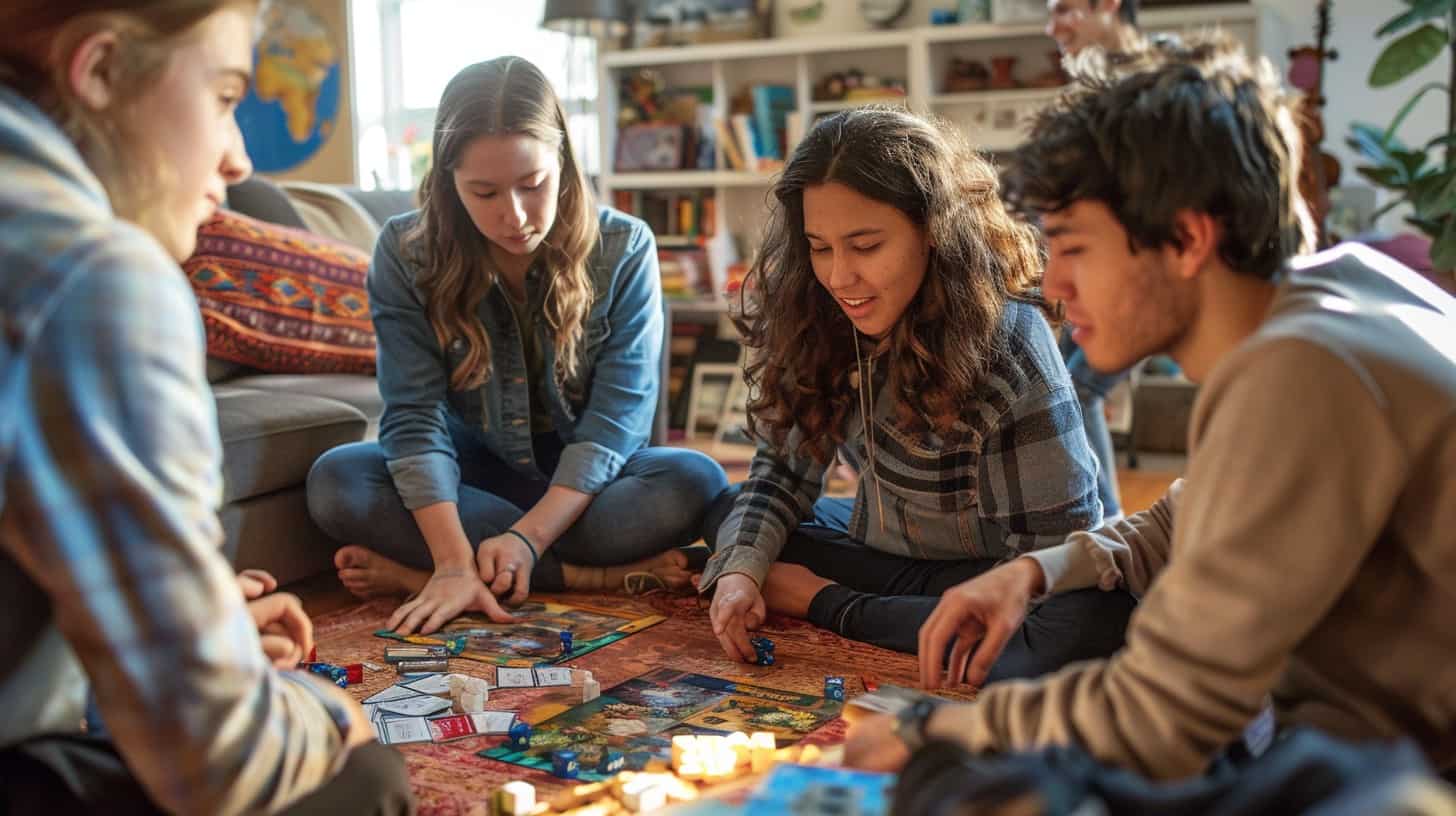
Shifting gears from the introduction, let’s tackle a biggie—excessive gaming. It sounds like all fun and games until it isn’t. Picture losing track of time, meals, and even sleep because the screen’s glow is just too mesmerizing.
This isn’t just about missing out on a few Z’s or skipping a meal here and there; it dives deeper into how our brains get hooked.
Excessive gaming can turn into an obsession, pushing aside hobbies that once filled your day with joy. Remember those afternoons spent biking or reading? They might start to fade away as virtual worlds become more enticing than the real one.
But here’s the kicker—it doesn’t just affect your personal life; social skills take a hit, too. The art of conversation. well, let’s just say it becomes as rare as finding an honest politician.
And then there’s stress—a constant companion for many addicted gamers who find themselves battling not only virtual enemies but also real-life anxiety and frustration when things don’t go their way in-game.
So, yes, while gaming is cool in moderation, crossing over to excessive play? That’s where dragons lie.
Different Types of Activities as Alternatives to Video Games
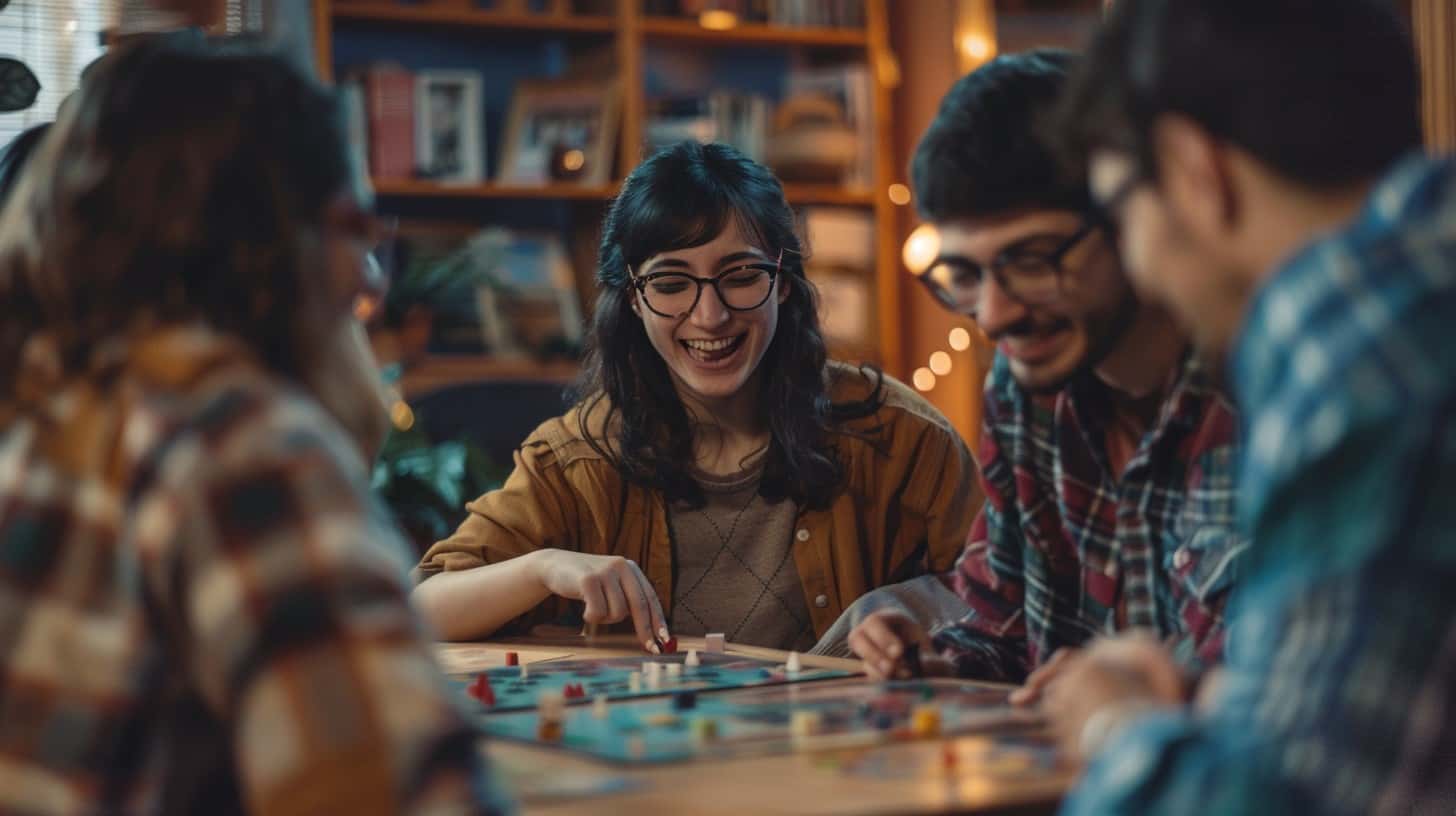
Looking for something different to do instead of gaming? We’ve got a bunch of cool options that’ll keep your brain busy and help you meet new friends.
Mentally Engaging Activities
Hello, gamers! Let’s face it, sometimes we need a break from the screen. But fear not, there are plenty of brain-boosting activities out there that can be just as thrilling as conquering your latest video game.
- Solve puzzles like Sudoku or crosswords. These aren’t just for passing time in waiting rooms; they’re hardcore brain workouts. They make you think outside the box and keep your problem-solving skills sharp.
- Dive into strategy games like chess or checkers. These classics are more than just board games; they’re epic battles of wits. Each move forces you to think ahead and predict your opponent’s next step.
- Create something new with arts and crafts. Grab some paper, paints, scissors, and glue – then let your imagination run wild. Crafting can improve your focus and give that sense of accomplishment you get from leveling up in a game.
- Learn a musical instrument. Ever thought about rocking out on the guitar or keeping the beat on the drums? Learning music improves memory, discipline, and even hand-eye coordination – similar to gaming but with real-life XP points.
- Write stories or start a journal. Put pen to paper (or fingers to keyboard) and create your own worlds. Writing stimulates creativity, helps sort out thoughts, and can be an emotional outlet after a tough boss fight in real life.
- Try cooking new recipes. Swap those virtual cooking games for real kitchen action! Following recipes enhances reading comprehension and attention to detail… Plus, you end up with delicious rewards at the end!
- Get involved in local clubs or groups related to science or tech stuff, like robotics teams or coding classes – yes, these can actually be social! You’ll meet fellow geeks who share your interests while working together on cool projects.
- Join book clubs or discussion groups around nerdy hobbies you enjoy outside gaming – whether it’s sci-fi novels or exploring the universe through astronomy books.
Each of these activities offers its own set of challenges, rewards, and opportunities for growth – much like video games but without any need for screen time! So take a pick from this list and try something new today; you might just find your next favorite hobby.
Resting Activities
Shifting gears from brain-busting pursuits, let’s ease into some chill vibes. Resting activities are your go-to for winding down without hitting snooze on fun. Here’s a list that keeps you engaged while letting your mind and body take a breather:
- Dive into Reading – Grab a book or an e-reader and get lost in another universe. Whether it’s fantasy, mystery, or a comic, reading kicks back your stress levels while boosting imagination.
- Podcast Marathon – Plug in those earbuds and listen away. From comedic banter to intriguing stories, podcasts have you covered for some easy listening. Plus, they’re perfect for gamers who love lore and storytelling.
- Get Cooking – Whip up something tasty in the kitchen. Cooking or baking can be as simple or complex as you like – either way, you end up with something delicious to eat!
- Sketch It Out – Drawing isn’t just for artists; it’s a mellow way to express creativity. Doodle in a sketchbook or try digital art apps on your tablet – no judgment here.
- Music to Your Ears – Whether playing an instrument or jamming to playlists, music has the power to soothe the savage beast—or in this case, the wired gamer.
- Lego Building Blocks – Constructing Lego sets isn’t just for kids; it’s architect fun at any age! Follow the instructions or create something from scratch.
- Craft Beer Brewing – For those old enough, brewing beer at home is both a science and an art—and waiting for the final product teaches patience, too.
- Online Horse Racing Betting – Many gamers enjoy the thrill of online horse racing betting as a way to unwind. It allows them to pick winners and follow live races without the need to leave home, immersing themselves in the excitement of horse racing today.
- Graphic Design Fun – Design cool graphics with software like Canva or Adobe Spark Post… Even make your own game characters!
- Making Jewelry – Crafting bracelets, necklaces, or earrings lets your style shine through—plus you get unique accessories out of the deal.
- Collectible Card Games (Offline) – Step away from the screen but keep the strategy alive with card games like Magic: The Gathering.
- Meditate for Mindfulness – Last but not least, meditation is key for true relaxation—breathe in calmness and exhale gaming fatigue.
These resting activities are not just fillers; they’re adventures of their own that let gamers switch modes without losing their sense of joy and wonderment!
Social Activities
After you’ve rested your brain, it’s time to get social. Social activities can spice up your life and give your mood a big boost.
- Team sports like basketball or soccer: Playing team sports is a great way to meet new people and learn teamwork. It’s fun, active, and you might score some cool friendships along the way. Plus, running around is a fantastic way to stay in shape.
- Joining hobby clubs: Whether it’s for geeky hobbies like building model trains or something active like martial arts, joining clubs can connect you with folks who share your interests. You’ll swap tips, tricks, and maybe even compete together.
- Board game nights: Invite friends over for a night of board games instead of screen time. From mystery-solving in role-playing games to fast-paced trick-taking games, there’s something for everyone. Laughing over a dice roll gone bad beats battling solo in front of a screen any day.
- Start volunteering: Lend a hand at local events or shelters and meet people who care about making a difference too. Volunteering brings people together for a good cause—you feel good helping out, and you make friends who’ve got big hearts just like yours.
- Outdoor adventures: Go hiking, biking, or set up an obstacle course in the park with friends. Fresh air does wonders for your emotional state—goodbye anger and loneliness, hello endorphins! Plus, figuring out how to climb that really tall rock wall? Total teamwork gold.
- Community theater: Act out your favorite play or help backstage with props and costumes. Theater groups are tight-knit communities where everyone plays their part—literally! You’ll learn timing, expression, and maybe even find out you’ve got acting chops.
- Cooking classes: Whip up culinary delights in group cooking sessions—a surefire recipe for fun…and maybe a food fight or two (just kidding!). Learning new recipes together turns into shared dinners and potlucks down the road.
- Scavenger hunts through town: They’re not just for kids! Organize one with clues tied to local landmarks or inside jokes among friends; it’s creative, gets you moving around town together—and might involve some hilarious antics too.
- Dance lessons: Salsa anyone? Or maybe breakdancing’s more your style? Either way, taking dance lessons gets you up close and personal with partners in rhythm—a pretty sweet way to make friends (and impress them at parties later).
- Kickstarting projects online: Dive into collaborative online platforms, where gaming skills like strategizing come in handy for creating new things—whether it’s digital art projects or starting up eco-friendly initiatives from scratch.
Learning to Code as an Alternative to Video Games
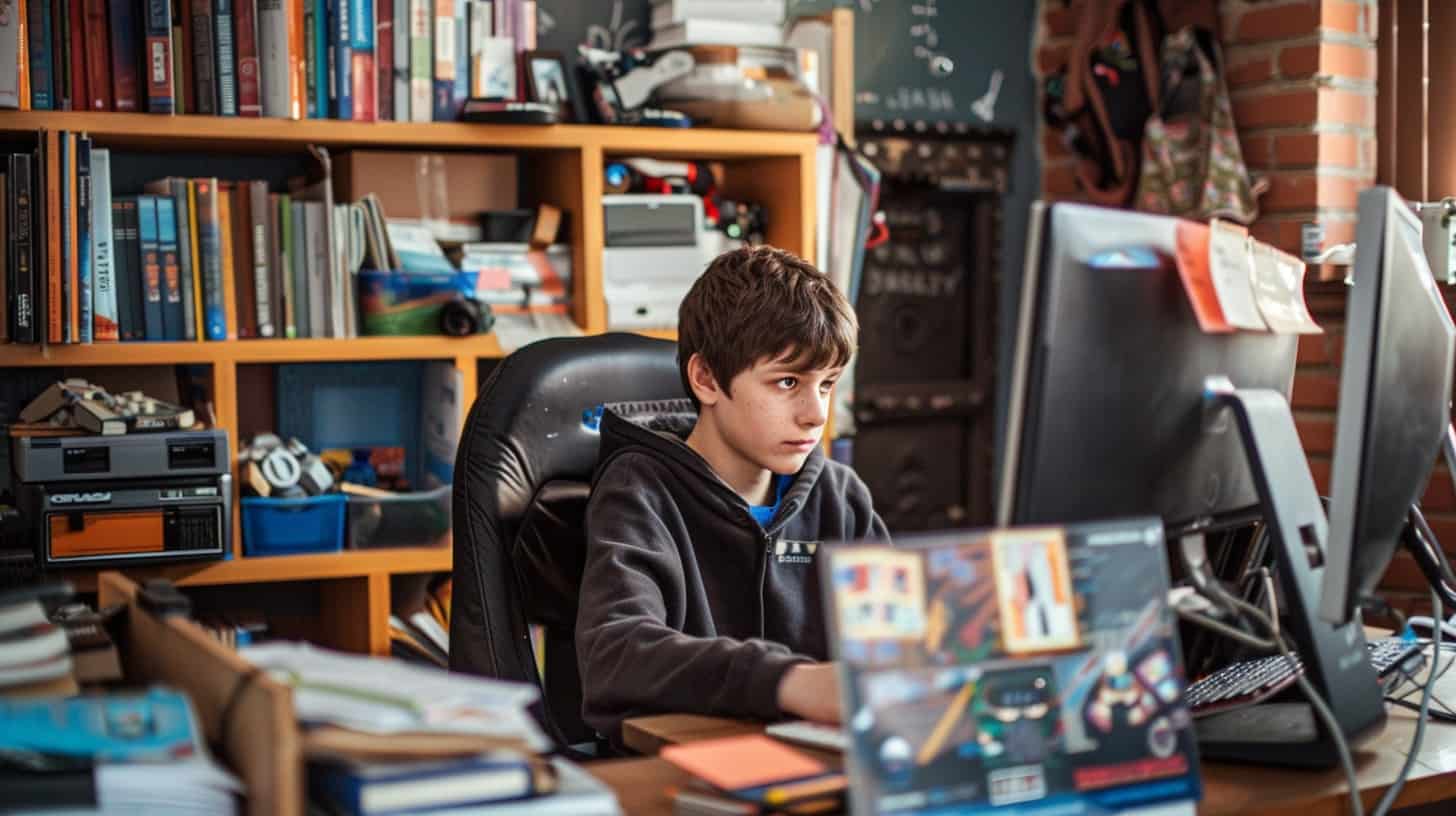
Switching from gaming to coding can be a game-changer. Instead of just playing games, why not make them? Coding is like unlocking a secret level in a game, where you learn the language that makes video games tick.
It’s exciting and challenging. You’re not just beating levels—you’re creating worlds. And the best part? The skills you pick up coding—problem-solving, thinking ahead, and breaking big tasks into smaller ones—are super useful in real life too.
Start simple with languages designed for beginners, such as Python or Scratch. These aren’t as intimidating as they sound and are perfect for getting your feet wet without feeling overwhelmed.
With tons of online tutorials and communities ready to help out, it’s easy to dive in. Imagine designing your very own video game, or even tweaking existing ones to suit your taste better.
Coding gives you the power to transform ideas into digital realities—an adventure that beats just playing any day!
Playing Card and Board Games Instead of Video Games

Card and board games are cool if you’re looking to spice up your gaming routine. They get your brain going and improve how you interact with others. Imagine beating your friends at Monopoly or outsmarting them in Clue.
These games make you think hard and strategize, which is awesome for your mental muscles.
These games also bring people together. You’re not just staring at a screen; you’re laughing, talking face-to-face, and maybe even bonding over a fierce game of Uno or Scrabble. It’s a win-win: fun times plus sharpening those social skills without even noticing!
Exploring 3D Modeling

After gathering friends for card and board games, maybe it’s time to switch things up a bit. 3D modeling could be just the right brain-teaser. It’s not just playing around with shapes and lines; it dives into creating worlds from scratch.
Imagine designing your own characters or inventing gadgets that don’t exist yet. It’s like being an architect, but for anything you can dream of.
This hobby taps into creativity and problem-solving skills big time. Learning the ropes can seem tricky at first, but there are tons of tutorials out there begging to show you the way—all you need is a computer and some software, like Blender or SketchUp, both powerful tools in crafting digital masterpieces.
Whether you’re pulling together a whimsical fairy tale landscape or modeling the next big invention, every project sharpens your brain bits related to visualization and spatial reasoning.
Plus, sharing your creations might just kickstart conversations with folks who dig the same kind of magic—turning this solo quest into a social adventure!
Participating in Scavenger Hunts

Gamers, hear me out. Switching up your routine with scavenger hunts can be a game-changer.
- Get creative with clues. Think outside the box and craft clues that challenge your buddies’ minds as much as any puzzle video game would.
- Explore new places. You’re not stuck in a room anymore. Take this chance to discover cool spots around your town or city.
- Team up for fun. Form squads just like in online games, but this time, you’re working together in real life.
- Enjoy the outdoors while you brainstorm solutions to tricky hints. Fresh air does wonders for your creativity and mood.
- Challenge accepted! Set time limits to add that thrilling rush you get from fast-paced video games.
- Snap some memories—use smartphones to capture moments of triumph or hilarious fails during the hunt.
- Learning on the go—every clue solved is a fist bump to your problem – solving skills, making you sharper with each win.
- Bond over laughs and shared victories, strengthening friendships more than any chat function in a game could ever do.
- Flex those leadership muscles by taking turns organizing hunts; it’s practice for guiding raid teams or clans without even realizing it.
- Accepting defeat with grace—sometimes you won’t find the answer before time runs out, reminding us all that it’s okay not to always be on top, just like in gaming ladders.
- Experience personal growth by stepping outside your comfort zone and tackling challenges head – on, proving there’s more to life than what’s on the screen.
Scavenger hunts are not just about running around looking for stuff—they’re brain exercises disguised as epic adventures with friends. So why not give it a shot?
Creating a YouTube Channel as a Gaming Alternative
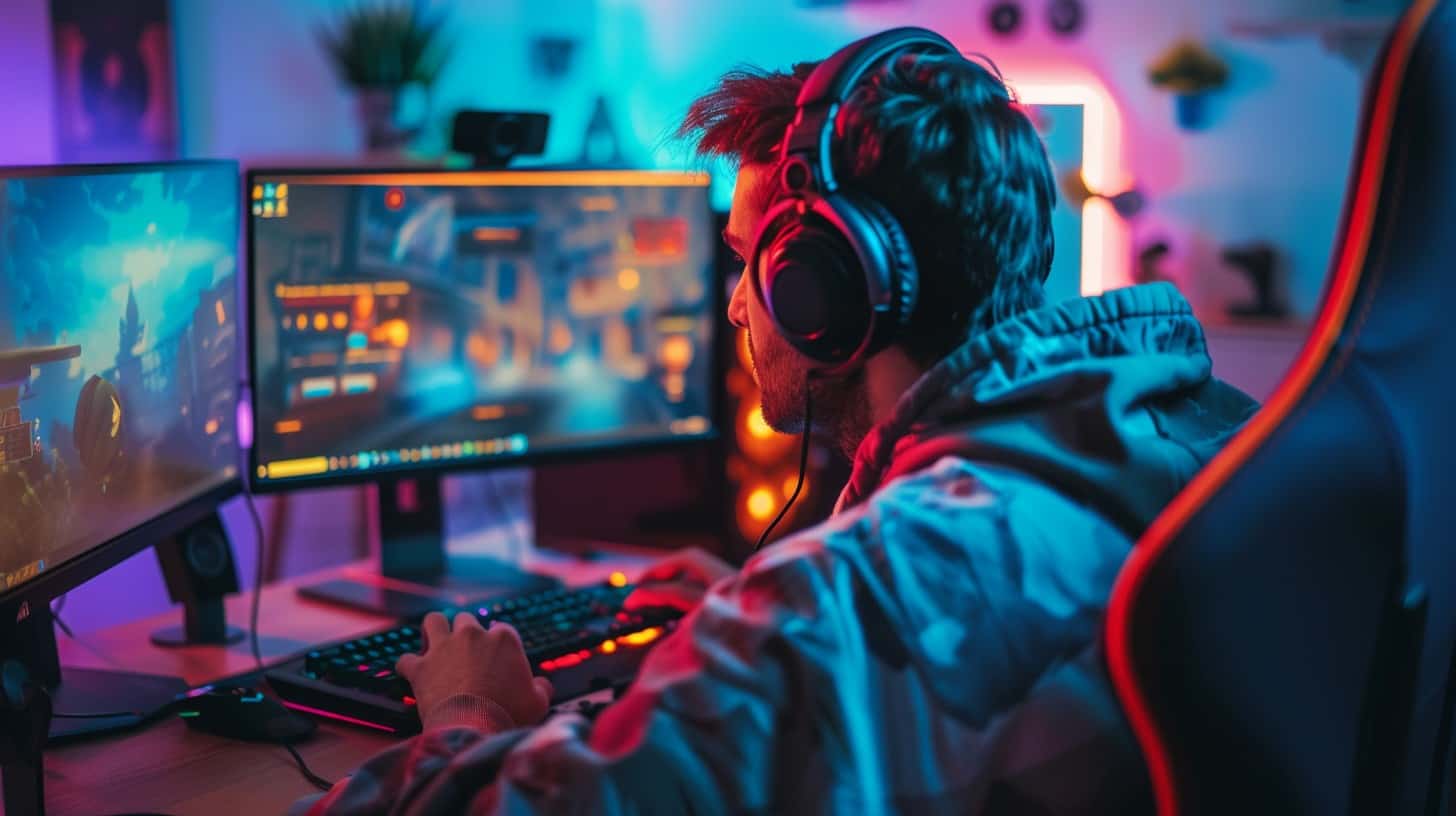
After hunting for treasures in scavenger hunts, consider creating your own YouTube channel. This option lets you dive deep into gaming topics without the need to game all day. You could review video games, share tips and tricks, or even discuss the impact of gaming on health.
It’s a great way to connect with others who love gaming too.
Starting a YouTube channel gives you a creative outlet where you can express yourself freely. Talk about what excites you in the gaming world, or explore other hobbies that interest gamers.
Plus, learning how to edit videos and engage viewers can develop skills that are useful both online and off. Your channel might just become the next big hit among gamers looking for fresh content!
Starting a Band as a Creative Outlet
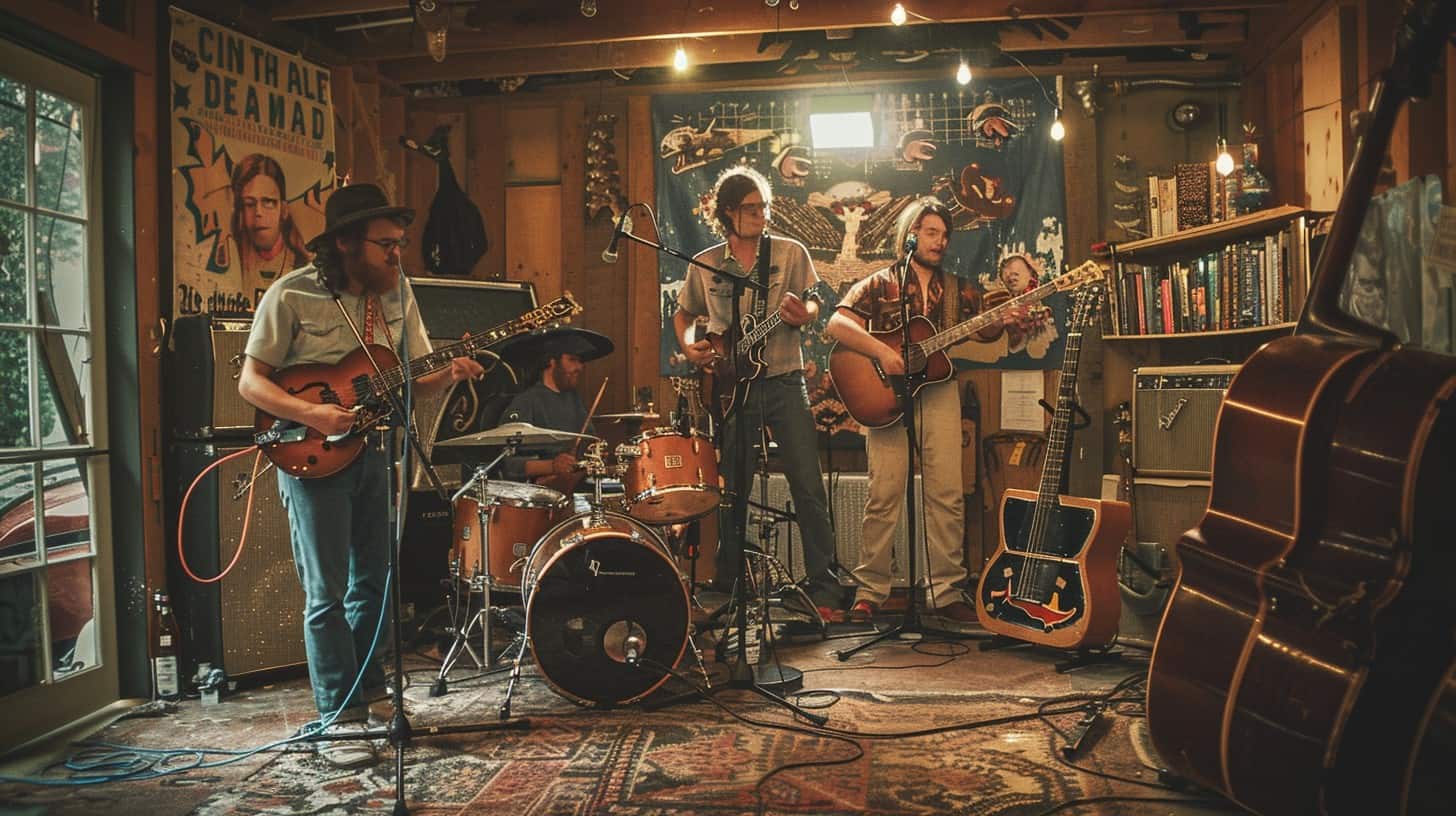
Forming a band kicks gaming habits to the curb and amps up your brain and social life. You get to mash skills, from strumming chords on a guitar to banging rhythms on drums. It’s not just about making noise—it sharpens your mind, coordination, and even brings friends together under one roof for practice.
Think of it like leveling up in real life but with tunes instead of missions.
Sharing music tastes can build bridges between people who might never have met otherwise. Collaborating on songs or covers also teaches vital team work skills—listening, compromising, and celebrating each other’s wins.
Plus, imagine the thrill of nailing that first performance together. From garage jams to local gigs, starting a band creates memories that last longer than any game save file could.
Engaging in Outdoor Activities: Obstacle Courses
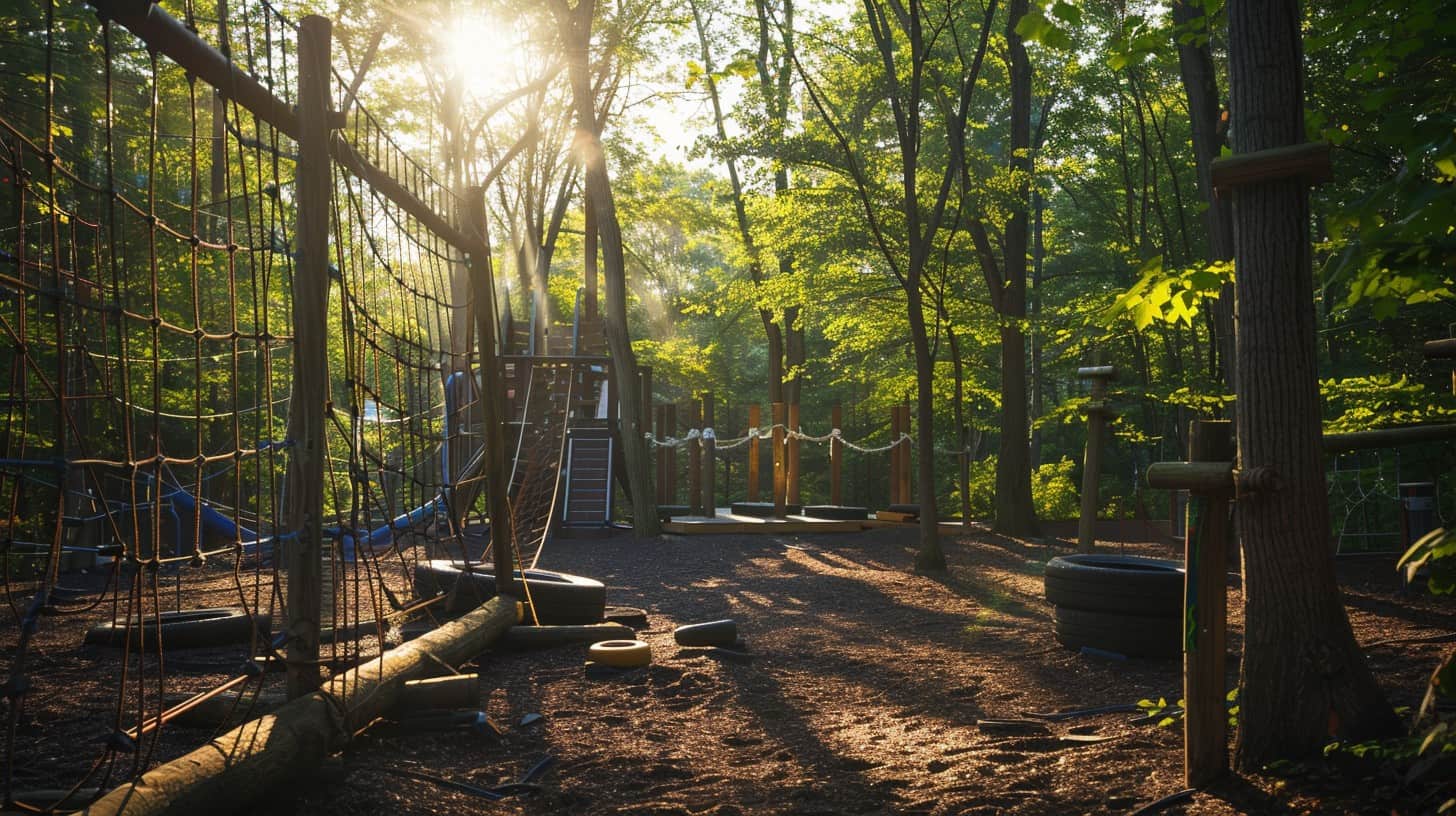
Let’s face it, being glued to the screen playing video games can get a bit stale. Why not mix things up with some outdoor activities, like obstacle courses? Here’s how jumping into an obstacle course can shake up your routine and bring some fun:
- Personal training session vibe – You get to challenge yourself physically in ways you don’t in front of a computer. It’s like having a workout that doesn’t feel like one because you’re too busy having fun.
- Fun for everyone – Whether you’re solo or with friends, obstacle courses are designed to entertain all. It’s competition and teamwork rolled into one.
- Boosts your brain – Maneuvering through various obstacles sharpens your problem-solving skills. Think of it as a real-life puzzle; each section requires a new strategy.
- Improves agility and strength – Climbing, jumping, and sprinting increase your dexterity and muscle power. Consider this the physical version of levelling up.
- Outdoor benefits – There’s something about fresh air that video games just can’t match. Plus, vitamin D from sunlight is a bonus.
- Confidence booster – Every obstacle you overcome is a mini victory, building confidence step by step.
- Break from screens – Give your eyes and mind a break from digital stimuli. Nature does wonders for mental fatigue and stress relief.
- Social interaction – Unlike online gaming, here you’ll work with people face-to-face, improving interpersonal skills and making new friends.
- Sense of adventure – Discovering each new obstacle brings out the explorer in you, offering unpredictable excitement outside the virtual world.
- Memorable experiences – You’ll create lasting memories filled with laughter, challenges, and achievements.
Shifting gears now, let’s explore another fun activity that takes creativity to entirely new heights: exploring 3D modeling!
FAQs About Alternatives to Video Games
Why should I consider alternatives to video games?
Playing too many video games can lead to a couch potato lifestyle, not just for your body but for your brain too! Mixing it up with activities that boost your noggin and social life is like giving your brain a gym membership.
What are some brain-boosting alternatives to video games?
Get this: things like solving puzzles, playing board games, or even diving into some cool science experiments can sharpen your mind faster than a ninja cutting carrots. These aren’t just fun; they’re like spinach for Popeye but for your brain.
Can outdoor activities really improve my social skills?
Absolutely! When you step outside and mingle, whether it’s kicking a soccer ball or simply exploring nature with friends, you’re not just getting fresh air. You’re also practicing the art of conversation and teamwork – no chatroom required!
How does doing something creative help me if I’m feeling down?
Ever hear of painting away the blues? It’s real! Getting crafty or jamming on an instrument can turn those frowns upside down faster than flipping pancakes. It’s like telling sadness, “You’re not the boss of me!”
Are there any hobbies that can help reduce stress besides meditating?
Sure thing! Gardening gets you in touch with nature and is as calming as counting sheep but way more productive. Or try cooking up new recipes – it’s basically chemistry without the boring lectures.
What if I miss playing video games while trying these alternatives?
Missing video games is normal at first – after all, old habits die hard. But give these new hobbies time; they might just surprise you by being as addictive as collecting coins in Super Mario but healthier for both mind and muscles!



